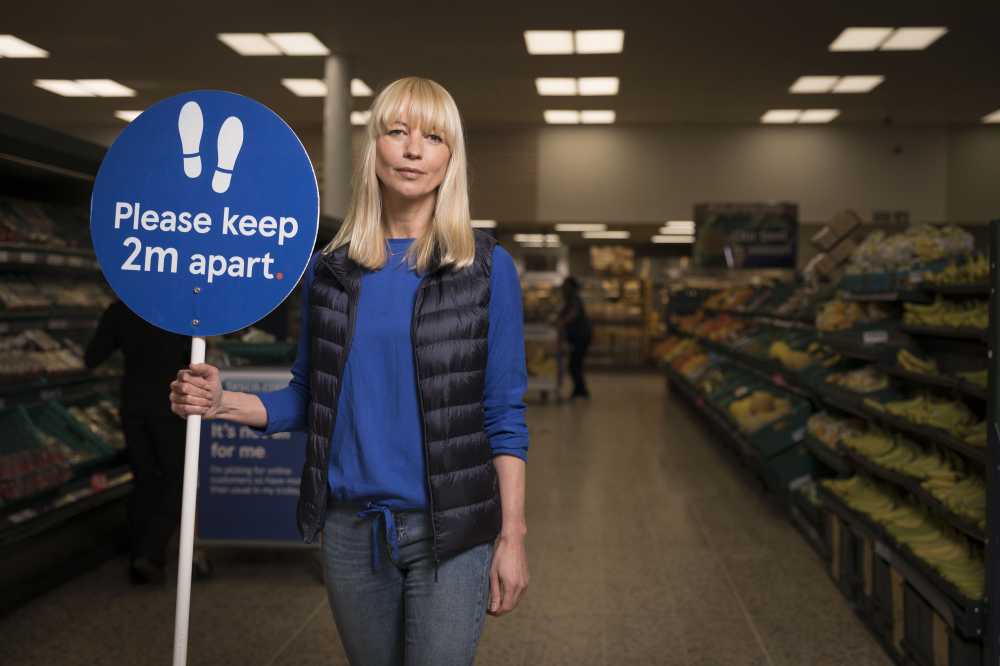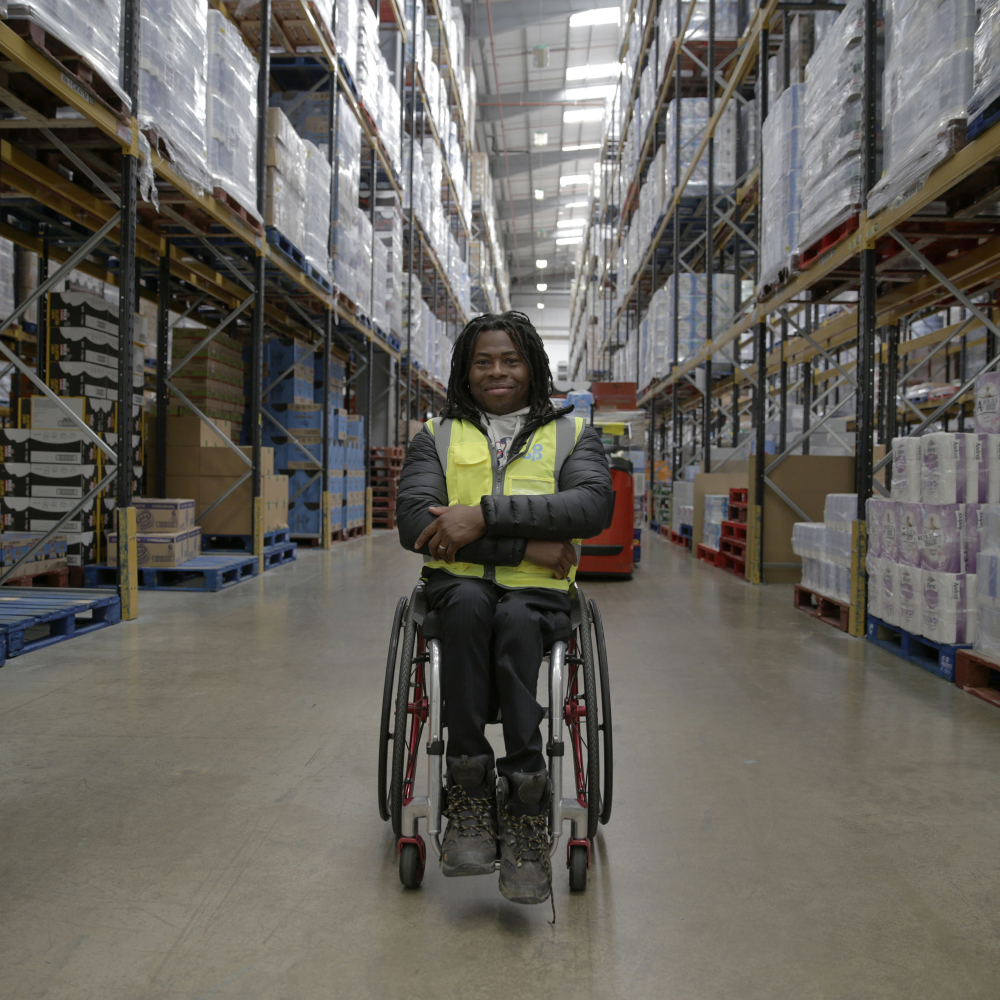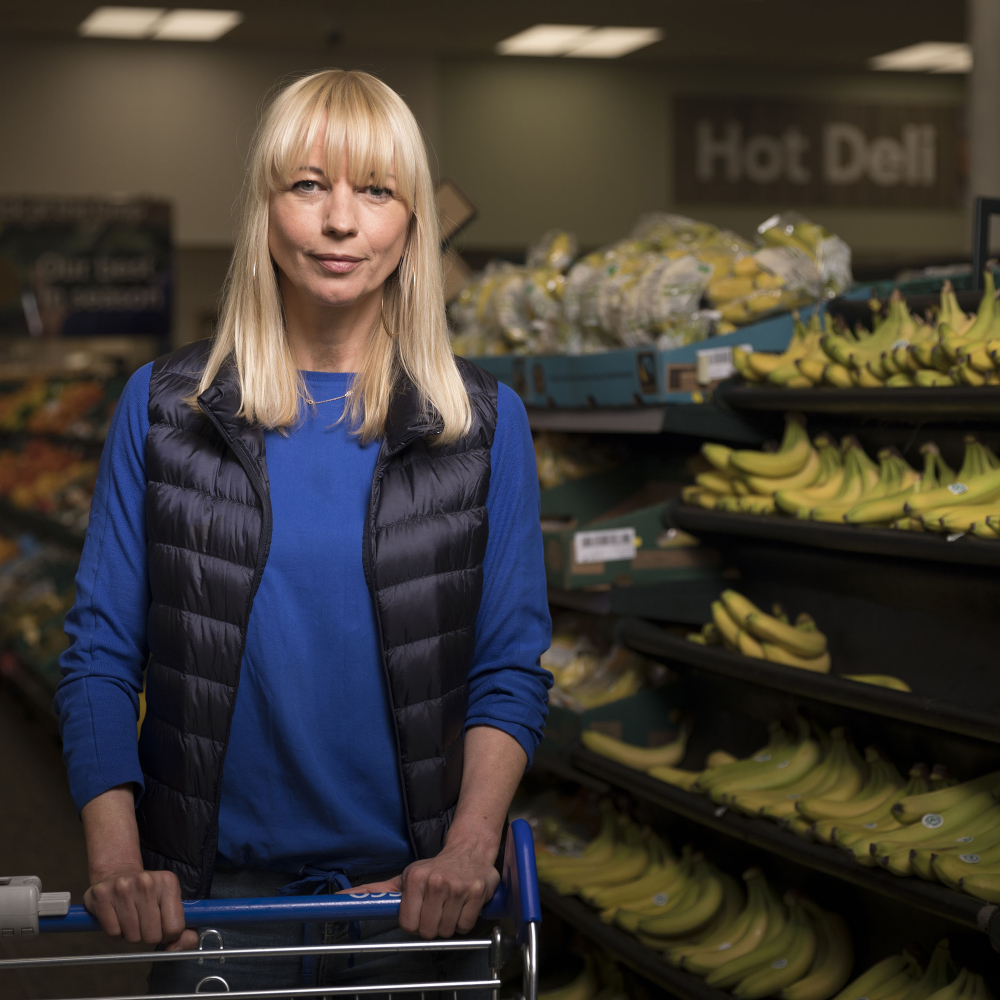Sara Cox is very upfront about the fact she loves sneaking behind the scenes. "I do love having a nosy around," she says, before merrily recalling the time she got "backstage" at a Waitrose because one of her kids needed the loo.

Sara Cox: ‘I’m quite at home in a loading bay’
Combine that with the fact she adores any kind of show "where you've got Gregg Wallace popping up in a factory behind a long line of Bourbon biscuits", you can see why the Bolton-born presenter was intrigued to explore the inner workings of supermarkets during lockdown.
One-off BBC documentary, Keeping Britain Fed, celebrates and investigates the 24 hour life-cycle of a supermarket, looking at how stores have adapted to meet coronavirus measures, with Cox, 45, spending time at a store in Wembley, and Ade Adepitan visiting farms, factories and depots in the supply chain.

"These places are well oiled machines anyway in normal times, but they've had to change so much to keep going," says Cox, who met everyone from truckers ("I'm a bit of a haulage geek because my dad drove a wagon for donkeys' years," she says with a laugh, "so I'm quite at home in a loading bay,") to those calmly and kindly managing customer queues.
"Without sounding too cheesy, it was all about the people," says Cox, explaining how even with the hi-tech computer systems supermarkets rely on, "without actual humans to work all this machinery, and to pick your apples and choose your box of eggs, none of it will work, none of us would be able to get fed."
Filming took place several weeks ago, when stores were in more of a routine and a far cry from the footage of people "carrying 18 packs of loo roll, inexplicably". Cox actually spoke to an analyst who pointed out it's likely we all, however innocently, played a small part in worries about food shortages. "I was quite smug going, 'I'm not panic buying at all', but if you bought two packs of spaghetti instead of one, you were part of the problem," says Cox self-deprecatingly.

"It was hard not to," she adds understandingly, "because we were a little bit frightened and we've not been in this position before."
Things have considerably settled down since then, although being inside a supermarket still feels a little odd. "When you've been queuing for an hour to get your fish fingers, you want to just get your bits and bobs and get out of there," notes Cox, and social distancing can be difficult, especially if you're filming in-store like she was. "I'm stood there getting under people's feet," she says, "and someone leans over for a packet of crumpets!"
"It was actually quite alarming being there in the shop when it was getting busier and busier," she admits. "But obviously the point is, the staff are in there working 8-10-hour shifts, and they're around it all day."
Cox's own experience of lockdown has been fairly smooth: "I keep checking my privilege, and there's lots of it." She's baked the odd loaf, but she notes "until things get really desperate, no one would choose my bread over a Gail's sourdough, or a slice of Kingsmill 50/50" – and she hasn't ripped up her lawn for veg beds. Although she'd quite "like to have some very happy hens laying me some happy little eggs," but living in north-west London, "I feel like it would be putting on a buffet for all the local mangy foxes…"
Cooking though is something she, like many of us, has been doing plenty of. "My husband is good at a lot of things," she says affectionately, "cooking is definitely not one of them." So most days she's been whipping up lunch and a dinner that can be reheated, for the five of them, before heading in to do her Radio 2 teatime show. "It used to just be me and my dogs, relaxing and listening to Jeremy Vine of a lunchtime," she recalls wistfully. "I knew before that I was spoilt, but this has really brought it home to me. Floating around my empty house while the kids were at school, it was lovely.
"I'd put my key in the door after the school run, and it was this silent house, yay! Now I can't bloody escape them."
What is interesting, she says is that her three kids have become "suddenly aware of food". "Weeks ago, I wrote a little sign that said, 'Three biscuits maximum per day,' on the biscuit cupboard, 'And one small packet of crisps' which sounds quite a lot when I say it out loud, but otherwise, because they're at home all day, they're just like a swarm of locusts.
"The kids on a Tuesday are checking with me, 'It's the shop tomorrow, isn't it?' Because they've noticed that as the week goes on, there's just not as much food in, and by Monday, there's not a scrap of fruit in the house. They're not going to get scurvy anytime soon, but they're noticing there's not plenty, like there always was."
Biscuit rationing aside, the main thing Cox hopes will change in terms of our relationship with supermarkets following the pandemic, is "that people appreciate supermarket workers more".
Historically she notes, it "was never seen as a sparkling career, or a very worthy thing to do, and people would wrongly look down their noses at that kind of work, and actually, when push comes to shove, and when things like this happen, it's not the rich and powerful that are making the difference, it's the workers; the wagon drivers, the farmers, the supermarket workers clocking on doing a night shift.
"It's all of those people who have saved us. I hope people remember that afterwards."
Keeping Britain Fed airs Wednesday June 17 at 8pm on BBC Two

